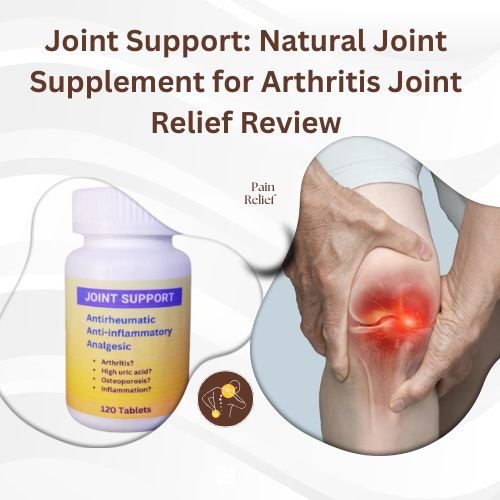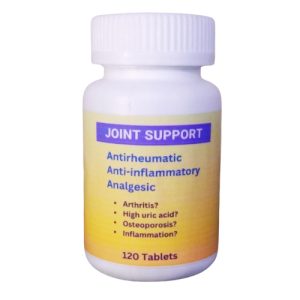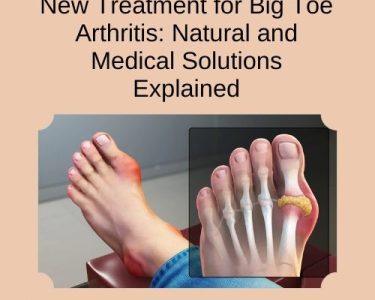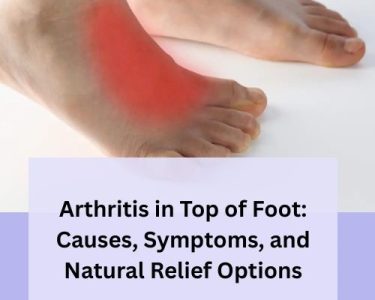Joint pain and stiffness are common complaints as we age or as we put strain on our bodies through activity, injury, or inflammatory conditions like osteoarthritis and rheumatoid arthritis. Many people turn to supplements to help support joint health, improve mobility, and reduce discomfort. One such product is Joint Support (marketed under the name Natural Joint Supplement for Arthritis Joint Relief). In this review, we will dive deep into the product’s formula, claims, pros and cons, user experience, and whether it’s worth considering as a part of a joint health strategy.
Before proceeding, note that I am not a doctor or healthcare provider. Supplements can help, but they are not a cure. Always consult your physician before starting any new regimen, especially if you are on medication or have serious health conditions.
Here’s a breakdown of what this review covers:
- Product overview
- Ingredients & formulation
- Claims & purported benefits
- Usage, dosage & safety
- What users report
- Strengths & weaknesses
- Comparisons & alternatives
- Final verdict & recommendations
Finally, you can find the product via this link: Natural Joint Supplement for Arthritis Joint Relief at Herbal Care Products
Product Overview
Joint Support, also called Natural Joint Supplement for Arthritis Joint Relief, is a herbal-based joint formula sold by Herbal Care Products. According to the product page:
- The product comes in a count of 240 pills per unit.
- It is positioned as a “Natural Joint Supplement … for active lives, supporting your joint health and repair from strenuous activity.”
- The formula is claimed to support joint flexibility, strength, mobility, cartilage and connective tissue health, as well as ways to help with rheumatoid arthritis relief and anti-inflammation.
- Key herbal ingredients are listed: “Armony, Goond Babool, Juhar Kalwangy, Marwareed, Revend Cheni, Shingraf Romee, Sownth, Soranjans”
- It also includes additional compounds like turmeric and MSM (methylsulfonylmethane), and minerals such as boron and manganese, per the product description.
The price is listed at US $156.99 for 240 pills (i.e., per bottle) on the site. Note: that is a relatively high price point, so cost to benefit becomes an important factor in evaluating the product.
Given this overview, let’s look more closely at what goes into it and whether the claims hold up.
Ingredients & Formulation
One of the most critical aspects of any supplement is its ingredient list, the form and dose of each ingredient, and the synergy (or interactions) between them. Unfortunately, the product page for Joint Support provides only a broad list of herbal names, without detailed breakdowns of the exact milligrams or standardization levels (e.g. % of active compounds). This makes in-depth evaluation harder, but we can still assess the likely benefits and risks based on what is disclosed and what is known about the herbs named.
Related Article: Joint Support: Natural Joint Supplement for Arthritis Joint Relief Review
Key Herbs and Add-ons Cited
Here are the herbs and compounds the product claims to include:
- Armony
- Goond Babool
- Juhar Kalwangy
- Marwareed
- Revend Cheni
- Shingraf Romee
- Sownth
- Soranjans
- Turmeric
- MSM (methylsulfonylmethane)
- Boron
- Manganese
Because names like “Armony” or local herbal names (e.g. “Goond Babool”) may not correspond directly to commonly referenced botanicals in Western scientific literature, it’s difficult to map exactly how potent or well researched each herb is. Some might be local names for well-known anti-inflammatory or joint herbs, but others might have less evidence.
However, certain recognizable ingredients have more research:
- Turmeric (curcumin) is a widely studied anti-inflammatory herb, often used in joint supplements. Its ability to reduce markers of inflammation is well documented, though bioavailability is a key concern (often requiring piperine or liposomal forms).
- MSM is a sulfur compound used in joint supplements, proposed to provide building blocks for connective tissue and reduce pain and inflammation in some studies (though evidence is mixed).
- Boron and manganese are trace minerals sometimes included in joint or bone health products. Manganese is part of enzyme systems in cartilage metabolism; boron has been proposed to influence bone and mineral metabolism, though human evidence is limited.
Given the lack of dosage disclosure, we cannot confirm whether these ingredients appear at levels likely to provide therapeutic benefit. A supplement might “include turmeric” but if the dose is very low, the practical impact could be minimal.
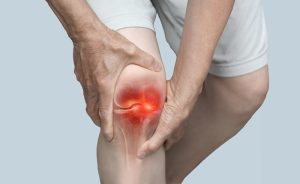
Synergy, Standardization & Quality Considerations
- Standardization: The product page does not mention standardized extracts (e.g. “curcumin 95%”) or quality control parameters. That is a drawback, because herbal supplements are only as good as their active content and purity (e.g. free of contaminants).
- Synergy: If the herbal components complement one another (e.g. combining anti-inflammatory plus cartilage support plus antioxidant herbs), that could raise the chance of noticeable effect. But redundancy or antagonism is possible if ingredients overlap too much or compete for absorption.
- Bioavailability enhancers: Because herbs like turmeric often have poor absorption, high quality joint formulas include absorption aids (like black pepper/piperine, phospholipids, liposomal forms). The page does not mention any bioavailability enhancers.
- Safety / interactions: Herbal compounds and minerals in combination may interact with medications or have contraindications (e.g. bleeding risk, interactions with anti-inflammatory drugs, kidney or liver effects). Without a certificate of analysis, unknown extraction solvents, or herb quality, there’s always a risk that the mix may contain impurities or heavy metals.
In summary: the formula shows promise (several herbs and minerals known for joint use), but transparency is weak — we don’t know effective doses or quality metrics. This should make prospective users cautious.
Claims & Purported Benefits
Joint Support’s marketing claims (via Natural Joint Supplement for Arthritis Joint Relief) include:
- Supporting joint flexibility, strength, and mobility
- Helping “relax joint pain” and improve comfort and flexibility
- Supporting cartilage regeneration or new cartilage production and connective tissue health
- Supporting bones (via inclusion of boron, manganese) and protecting bone density
- Anti-inflammatory properties (implied via ingredient list)
- Efficacy for rheumatoid arthritis joint relief
These are broad claims, and the product page even includes a disclaimer noting that “no information in this website can be substituted with medical advice or physician consultation.” So the company is acknowledging limitations in what is promised.
From a critical stance:
- The claim about cartilage regeneration is ambitious. While certain compounds (e.g. glucosamine, chondroitin) have been studied for cartilage support, evidence remains inconclusive or modest. Without clinical trials specific to Joint Support, the claim remains speculative.
- Claims of anti-inflammation and pain relief are more plausible, especially because herbs like turmeric have evidence in reducing inflammatory markers. However, supplement effects tend to be milder than pharmaceutical drugs.
- Support for bone density is plausible in theory (via minerals), but again depends heavily on dosages and bioavailability.
- Rheumatoid arthritis is an autoimmune inflammatory disease; managing it usually requires immunomodulatory therapy. Herbal support might help symptomatically, but it should not be considered a standalone therapy.
In sum, some claims seem reasonable if the formulation is robust; others (especially cartilage regeneration or rheumatic disease relief) should be taken cautiously unless supporting clinical data is available.
Usage, Dosage & Safety
- Week 1–2: Begin with 1 Tablet twice daily, after meals.
- Week 3–8: Increase to full dose (e.g. 2 capsules twice daily) if well tolerated.
- Month 3+: Monitor progress. If improved, continue maintenance dose. Reevaluate joint health every three months.
- Combine: Pair with exercise, weight management, and balanced nutrition.
- Track: Use a journal or app to log pain, mobility, and side effects weekly.
Safety Considerations & Contraindications
When dealing with herbal joint supplements, particularly blends, these are general safety factors to consider (though specific risk may vary):
- Drug interactions
- Turmeric (curcumin) can interact with blood thinners (anticoagulants), antiplatelet drugs, some proton-pump inhibitors, and possibly glucose-lowering medications.
- Certain herbs may interfere with liver metabolism pathways (CYP450 enzymes), altering drug metabolism.
- Mineral content (boron, manganese) may interfere with absorption of other minerals or medications.
- Allergies / sensitivities
- Some users might be sensitive to herbal extracts, leading to gastrointestinal upset, skin reactions, or other idiosyncratic responses.
- Overload of active compounds
- Because the formula is a blend, cumulative load (e.g. of sulfur compounds, minerals) might exceed safe levels, especially if users already take multivitamins or other supplements.
- Quality control / contamination risks
- Herbal products sometimes risk contamination with heavy metals, pesticide residues, or adulterants if sourcing and testing are not rigorous. Lack of disclosed third-party testing is a drawback.
- Pregnancy / breastfeeding / children / liver or kidney disease
- It is especially risky for pregnant or breastfeeding women to use potent herbal formulas without medical supervision. Users with compromised liver or renal function should be cautious, as metabolizing multiple phytochemicals can stress detox systems.
Thus, any user should:
- Start with low dosage or “test” a few days (if safe).
- Consult a clinician, especially if on prescription drugs (e.g. anticoagulants, NSAIDs, DMARDs).
- Monitor for symptoms (GI upset, allergic reaction, abnormal labs).
- Prefer products with certificate of analysis/third-party testing (if obtainable) to reduce contamination risk.
Given the lacking transparency in this product’s labeling, safety vigilance is even more critical.
What Users Report / Anecdotal Experience
I was unable to locate detailed, verified user reviews specifically for Joint Support / Natural Joint Supplement for Arthritis Joint Relief outside what is on the product page. The product page itself does not display user testimonials or before/after data.
However, we can reason from general patterns in herbal joint supplement use:
- Some users of herbal joint blends report modest improvement in joint pain, stiffness, and mobility over weeks (4–12 weeks) of consistent use.
- Placebo effect often plays a role: belief in improvement can drive perceived changes, especially for subjective measures like pain.
- Those with mild to moderate joint discomfort, no severe structural damage, and otherwise healthy metabolic systems tend to benefit more from supplements than individuals with advanced arthritis or autoimmune disease.
- Some users may see no benefit, or intermittent relief, especially if dosages or absorption are low.
Given the strength of the claims by the manufacturer, strong user feedback or third-party trials would bolster confidence, but the absence of that transparency is a downside.
If you like, I could help you search and collate verified user reviews from forums, Amazon, or health supplement review sites.
Strengths & Weaknesses
Below is a balanced summary of pros and cons based on the evidence and information available.
Strengths
- Broad herbal + mineral blend
- The formula includes multiple herbs that traditionally are used for joints and inflammation, plus minerals for bone support.
- Using multiple agents can create a multi-pronged approach (anti-inflammatory, cartilage support, antioxidant protection).
- “Natural” positioning / appeal
- The marketing emphasizes “natural herbal extract” and an herbal alternative to synthetic options, which appeals to many users looking for gentler, holistic support.
- Large pill count (240)
- One bottle provides a relatively high count of pills, which (depending on dosage) might allow for months of use.
- Anti-inflammatory potential
- With turmeric, MSM, and other herbs, there is a plausible mechanism for reducing joint swelling, pain, and oxidative stress.
Weaknesses
- Lack of dosage transparency
- Without listing ingredient amounts, standardized extracts, or percentage of actives, it’s hard to know whether the formula is effective or sub-therapeutic.
- No published clinical evidence
- No clinical trials or third-party testing results are referenced on the product page, which undermines trust in efficacy beyond anecdote.
- High price
- At ~$156.99 for 240 pills, cost per pill is substantial. If the effective dosage requires multiple pills per day, the cost may be prohibitive.
- Unclear safety / lack of third-party verification
- No mention of third-party testing, purity certificates, heavy metal screening, or contaminant checks.
- Ambitious claims
- Some claims (e.g. cartilage regeneration, rheumatoid arthritis relief) stray into territory where evidence is weak or absent.
- Potential interaction risks
- Users with comorbidities or on drugs must be very cautious because the herbal blend may interact with medications.
Comparisons & Alternatives
When considering Joint Support (Natural Joint Supplement for Arthritis Joint Relief), it’s worth comparing with other joint supplements to see how it stacks up in terms of transparency, price, clinical support, and user trust.
Common alternatives / benchmark supplements
- Glucosamine + Chondroitin + MSM blends
- Many reputable joint formulas use well-researched compounds (glucosamine sulfate, chondroitin, MSM) in known effective doses, often backed by clinical trials.
- Curcumin / Turmeric with absorption enhancers
- Some premium products use high-absorption variants (e.g. curcumin phytosome, Meriva, BCM-95) plus piperine or shipping systems to boost uptake.
- Boswellia / Devil’s claw / Ginger blends
- Herbal formulas combining multiple anti-inflammatory herbs in known doses, backed by some pilot human studies.
- Joint formulas from known supplement brands
- Brands that disclose full ingredient label, third-party testing, and certificates of analysis.
Where Joint Support may lag or differ
- Many top joint supplements list mg amounts and standardization (e.g. “500 mg glucosamine sulfate 2KCl,” “95% curcumin (Meriva) 250 mg”). Joint Support does not.
- Trusted supplements often show clinical trial references or consumer lab test results; Joint Support does not provide these.
- Price-to-value ratio: Some well-known brands sell high-quality joint formulas at lower or comparable cost per effective dose.
- Reputation & user reviews: Established brands often have extensive user feedback, clinical data, and independent reviews; Joint Support is newer and less documented.
Thus, Joint Support could appeal to those seeking an herbal route, but serious users or those with moderate to severe disease may prefer supplements with more transparency and proven track records.
Final Verdict & Recommendations
After reviewing the available data, here is my reasoned judgement regarding Joint Support / Natural Joint Supplement for Arthritis Joint Relief.
Who Might Benefit
- Individuals with mild to moderate joint discomfort, stiffness, or early-stage arthritis, who prefer herbal solutions and are comfortable with some uncertainty in dosing and efficacy.
- Those without serious comorbidities, not on multiple prescription medications, and willing to try a supplement under medical supervision.
- Individuals who are patient and consistent (i.e. willing to take the product for several weeks before judging effect).
Who Should Be Cautious or Avoid
- People with moderate to severe joint disease, significant structural damage, or autoimmune arthritis should not rely solely on this supplement; medical therapy is essential.
- Those on blood thinners, immunosuppressants, or other major medications need to be cautious about herb-drug interactions.
- Pregnant, breastfeeding, children, or persons with liver/kidney impairment should avoid unless cleared by a doctor.
- Anyone unwilling to accept lack of dosing transparency or uncertain purity should consider more documented alternatives.
My Verdict
Joint Support (Natural Joint Supplement for Arthritis Joint Relief) is an ambitious herbal formula that offers promise in theory—but lacks transparency, clinical backing, and dosage clarity to be a “sure bet.” For users who understand the risks and have realistic expectations (i.e. modest relief, not miracle cure), it could be worth a trial. But for someone seeking strong, evidence-based support, I would lean toward supplements with better documentation or perhaps complementary therapies (physiotherapy, diet, lifestyle changes, conventional medications) rather than depending heavily on this product.

